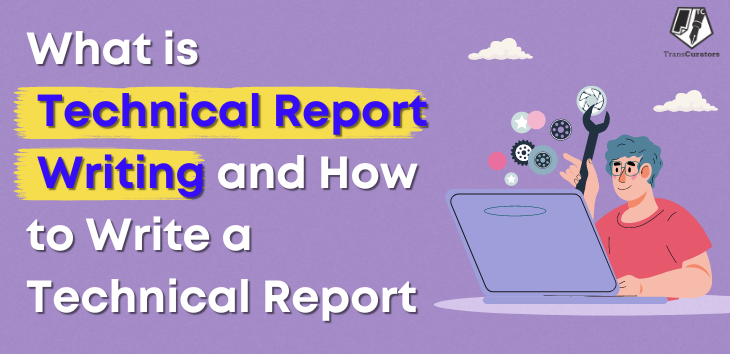
Have you ever wondered how some brands always catch your eye with their blogs, videos, or social media posts? That’s the magic of content marketing in action. Content marketing has emerged as a crucial strategy in the digital age. Content marketing entails creating and sharing valuable, relevant, consistent content to attract and engage an intended audience. Unlike traditional advertising, which focuses on selling, content marketing builds loyalty and confidence by offering knowledge and insights that solve issues, answer questions, or entertain the audience, allowing businesses to interact with their target audience, increase brand awareness, and drive conversions. In this blog, we will gain insight into what content marketing means, discuss its different types of content marketing, and check out some real-world examples. Let’s explore the fascinating world of digital content marketing together!
What is Content Marketing?
Understanding the content marketing meaning is important for creating effective strategies. Content marketing is a strategy for businesses to attract, engage, and retain customers by creating and offering valuable, relevant, and consistent content. The key objective is to provide the audience with knowledge they will find helpful and exciting. Rather than just selling a product or service, content marketing focuses on building connections with potential customers by offering them something of value.
Content marketing is about customising premium content for your target audience’s requirements and interests. Businesses can increase brand recognition, build trust, and encourage profitable customer behaviour. It’s a method to engage with your audience by giving them knowledge that enriches their lives or addresses their issues instead of pushing them to purchase.
Why is Content Marketing Important?
Content marketing is essential for businesses to effectively reach and connect with their audience. It serves several critical purposes in modern marketing strategies.
- Content marketing assists businesses in building trust and credibility with their target audience by constantly providing them with valuable and relevant content and exhibiting their expertise and knowledge in that specific industry. This cultivates trust in potential customers, increasing their chances of choosing that brand when they are ready to purchase.
- Second, content marketing is essential for increasing brand awareness. Businesses can create interest in their products or services and attract attention by developing and marketing content that resonates with their target audience’s needs and interests, leading to increased market reach and visibility.
- A significant factor in increasing client engagement is content marketing. Businesses produce valuable content to connect with their audience and encourage interactions and engagement. This interaction can offer enterprises significant information about customer preferences and behaviours, enabling them to refine their marketing strategies for the future.
- Content marketing promotes long-term growth and sustainability. Unlike traditional advertising, which usually has a limited impact, content marketing focuses on delivering long-term value. Good content can retain and engage consumers over time, which leads to consistent traffic, conversions, and, ultimately, business success.
Content marketing is vital because it boosts credibility, raises brand awareness, encourages interaction, generates leads, and promotes long-term growth. It helps businesses fit with the needs and interests of their target audience, creating meaningful interactions and long-term relationships.
Types of Content Marketing
Content marketing is an effective technique for organisations to attract, engage, and retain customers by creating and sharing valuable content. Various types of content marketing can help achieve different goals, such as increasing brand awareness, generating leads, and driving sales. Here, we explore several effective types of content marketing that you can use to enhance your marketing efforts.
1. Blog Posts
Blog posts are one of the most popular types of content marketing. They allow businesses to deliver helpful information, exchange ideas, and establish an authority in their area of expertise. Regularly writing high-quality blog entries will help your website’s SEO, increase organic traffic, and engage your audience. Topics include how-to instructions, industry news, personal stories, and expert interviews.
2. Social Media Content
Social media platforms are a great way to interact with your audience and market your brand. Social media consists of posts, stories, videos, and live streams on sites like Facebook, Instagram, Twitter, LinkedIn, and TikTok. By generating interesting content, you can expand your audience, build a community, and boost traffic to your website and products.
3. Videos
Videos are highly intriguing content that can rapidly capture your audience’s attention. They can be used for various purposes, including product demonstrations, tutorials, testimonials, and behind-the-scenes footage. Video content can often be easily shared on platforms like YouTube, Vimeo, and social media. High-quality videos can assist in teaching complicated concepts, advertising products, and building a connection with your audience.
4. Infographics
Infographics combine visuals and text to deliver information entertainingly. They are useful for explaining complex data, illustrating processes, and sharing statistics. Infographics can be shared on social media, included in blog posts, or used in presentations. They are easy to comprehend and can quickly convey important information to your audience.
5. Ebooks and Whitepapers
Ebooks and whitepapers include detailed information on specific topics. They are great for generating leads since you can offer them in exchange for contact information. Ebooks are more comprehensive and can cover many issues, whereas whitepapers are more specialised and technical. Both allow you to establish credibility and offer valuable resources to your audience.
6. Case Studies
Case studies demonstrate how your products or services have helped consumers solve problems or achieve goals. They give evidence of your achievement and help increase your trust with future customers. A well-written case study highlights the customer’s problem, the solution you proposed, and the results that were achieved. This type of content is particularly effective for B2B marketing.
7. Email Newsletters
Email newsletters allow you to stay in touch with your audience by providing them with frequent updates. It can include various content, including corporate news, blog post summaries, product releases, and special offers. Email marketing lets you personalise content and establish a direct relationship with your subscribers, fostering loyalty and engagement.
8. Webinars and Online Events
Webinars and online events enable a real-time platform for sharing knowledge, demonstrating expertise, and connecting with your audience. They are suitable for training, panel discussions, product debuts, and Q&A sessions. Hosting useful and interesting webinars allows you to communicate with your target audience, create leads, and establish your brand as an expert in your field.
9. Podcasts
Podcasts serve your audience an easy way to consume content on the go. They can cover many topics, including industry news, expert interviews, and debates about current challenges. Podcasts let you communicate with your audience through voice and can be distributed on platforms such as Apple Podcasts, Spotify, and Google Podcasts.
Benefits of Content Marketing
Content marketing offers numerous advantages that can significantly enhance your business’s visibility, credibility, and growth. By understanding these benefits, you can effectively leverage content marketing to achieve your business objectives. Here are some of the primary benefits of content marketing:
1. Builds Brand Awareness
Content marketing helps you to reach a larger audience by creating and distributing valuable insight across multiple platforms. When you consistently post excellent content, you increase the possibility of being noticed by potential customers. This increased visibility helps to raise brand awareness and recognition.
2. Establishes Authority and Credibility
Sharing educational and insightful information elevates your business as a leader in your field. When you deliver informative content that addresses your audience’s concerns and inquiries, you build credibility and trust. This can result in increased loyalty and longer-term consumer relationships.
3. Improves SEO and Organic Search Rankings
Content marketing is critical for increasing your website’s search engine optimisation (SEO). Regularly updated, high-quality content attracts search engines and boosts your website’s position. You can drive organic traffic to your website by using relevant keywords and providing content that resonates with your target audience.
4. Generates Leads and Conversions
Effective content marketing attracts and engages potential customers, guiding them through buying. You can generate high-quality leads by offering helpful content, such as ebooks, whitepapers, and webinars, in exchange for contact information. Engaging content also nurtures these leads, boosting their chances of conversion.
5. Enhances Customer Engagement and Retention
Content marketing facilitates ongoing communication with your audience, resulting in greater engagement. Regularly updated blogs, newsletters, and social media postings will keep your audience informed and interested. This continuous involvement strengthens connections and improves client retention.
6. Cost-Effective Marketing
Content marketing is more cost effective than traditional marketing strategies. It achieves long-term outcomes without requiring significant continuing commitment. Quality content draws attention long after publication, giving long-term value and a return on investment (ROI).
7. Adapts to Changing Consumer Behaviours
Content marketing adapts well to the changing behaviours of consumers. People increasingly seek information online and prefer engaging with brands that provide helpful, relevant content. You can remain current and competitive by keeping up with trends and meeting your audience’s evolving needs.
Examples of Content Marketing
To understand the impact of content marketing, let’s look at some successful content marketing examples from various industries:
Red Bull
Red Bull has mastered the art of content marketing with its emphasis on extreme sports and adventure. The company produces high-quality videos, articles, and social media content that features extreme sports athletes and events. Red Bull’s content does not directly market its energy drink but instead coincides with its adrenaline and excitement brand image, creating a solid connection with its audience.
Nike
Nike is skilled at storytelling through content marketing. The brand’s ads often feature inspirational stories about athletes overcoming challenges and achieving success. For example, Nike’s “Just Do It” campaign motivates and inspires its audience with powerful videos and social media content. This emotional connection strengthens brand loyalty and resonates with customers.
HubSpot’s Blog
HubSpot, a leader in marketing, sales, and customer service software, runs a highly successful blog covering a wide range of relevant topics. Their content includes detailed how-to guides, industry news, and tips for enhancing business strategies. This blog helps educate their audience and establishes HubSpot as a trusted authority in their field.
Conclusion
Content marketing is a powerful strategy for businesses to engage with their target audience, increase brand loyalty, and generate profitable actions. Understanding the various types of content marketing and learning from successful examples will allow you to develop a strong content strategy tailored to your objectives and target audience. You must have defined goals, audience insights, high-quality content, and continuous optimisation to execute content marketing strategy successfully. Whether you are a small business or a significant corporation, using the power of content marketing could help you achieve long-term success and growth.
Contact us today to get started!
Frequently Asked Questions
A1. Success can be measured through website traffic, engagement rates, lead generation, conversion rates, and return on investment (ROI).
A2. Consistency is key. Whether daily, weekly, or monthly, maintaining a regular publishing schedule helps keep your audience engaged and coming back for more.
A3. Absolutely! Content marketing is cost-effective and can help small businesses build brand awareness, attract new customers, and compete with larger companies.
A4. Effective content is relevant, valuable, and tailored to the target audience. It should address their needs, answer their questions, and solve their problems.
A5. Identify your target audience and their needs, then create a content plan. Start producing and sharing content consistently, and measure your results to refine your strategy over time.



